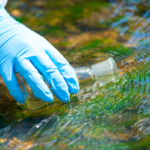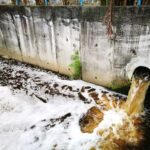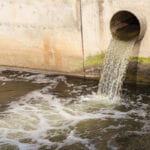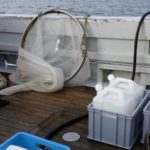New approach to monitoring freshwater quality can identify sources of pollution, and predict their...
The source of pollutants in rivers and freshwater lakes can now be identified using a comprehensive new water quality analysis, according to scientists at...
Utilities should prepare ahead of mandatory monitoring
Healthier rivers will be one outcome of implementation of the Environment Act 21, writes Darren Hanson of water technology firm Xylem. Now water companies...
Innovation would help find more chemicals in water, say conference speakers
At the British Water Micropollutants Conference 2024, which took place in London on 8 February, keynote speakers from the UK's Environment Agency called for...
Comment: PFAS removal – we already have the technology
The issue of PFAS contamination of drinking water sources has been under the media spotlight in recent weeks, scrutiny that is likely to increase...
Comment: Agriculture and pharma key to solving micropollutants problem
In the face of growing public concern about the presence of micropollutants in water and wastewater, Dr Pablo Campo Moreno identifies initiatives that he...
Trade effluent monitoring in Essex
This article contains paid for content produced in collaboration with Pollution & Process Monitoring (PPM).
Pollution & Process Monitoring (PPM) has engineered a bespoke analytical...
Do or dye: Synthetic colours in wastewater pose a threat to food chains worldwide
The ecological and health threats of synthetic dyes entering wastewater systems have been detailed in a new study, which calls for new laws worldwide...
How to eliminate the risk and mess of polymer spills
Polymers play a key role at municipal/industrial water and wastewater treatment plants, but also bring the risk of major disruption and extra expense if...
A new kind of online tool launches to tackle road runoff pollution
A new online tool highlights where opportunities exist to install nature-based solutions, such as wetlands, to tackle road runoff pollution before it ends up in...
New study finds that sewage release is worse for rivers than agriculture
New research by the University of Oxford seems to reveal that sewage discharge into rivers has a greater impact on water quality, and the...
Growing demand for storm overflow cameras
Water companies are now legally obliged to publish data on their storm overflows, but many of these discharge points are also increasingly being monitored...
UK government’s attempt to loosen nutrient neutrality rules blocked by the House of Lords
The government has lost its bid to scrap nutrient neutrality rules for housing developments, with Labour Lords voting to reject the proposed amendments (to...
Licence to spill? Legislative status of government’s new plans unclear
River conservation groups reacted with alarm to the news (on 29 August) that the government plans to ease restrictions on developers' need to ensure...
Tannins: A possible answer to microplastic pollution?
Scientists at UBC’s BioProducts Institute find that if you add tannins to a layer of wood dust, you can create a filter that traps virtually all...
EA launches consultation on unlimited fines for the worst polluters
New laws will scrap the cap on civil penalties and significantly broaden their scope to target a much wider range of environmental offences
On 15...
Somerset tank project will store 800k litres of sewer water
A £9.5 million project to boost the storage and treatment of wastewater gets underway near Bridgwater, Somerset this autumn, says Wessex Water.
Construction teams will...
Even treated wastewater affects our rivers, and new study attempts to characterise species shift
New study seems to show that effluents from wastewater treatment plants change the balance of invertebrate communities in Hesse’s waters
Effluents from wastewater treatment plants...
“Modern chemistry is rubbish”: Time to wake up to environmental effects, suggests commentary
Modern day chemists need to broaden their horizons and consider the effects of chemistry “beyond the reaction vessel and the fume hood”, according to...
Biosurfactants might offer an environmentally friendly solution for tackling oil spills
Can biosurfactants increase microbiological oil degradation in North Sea seawater? An international research team have been exploring the question and say the results reveal...
Microplastics collect heavy metals, reports study from Ulaanbaatar
Surface cracks and biofilms on plastic particles might help spread pollution
Concerns about microplastic pollution arise not only because of the particles themselves, but...





















